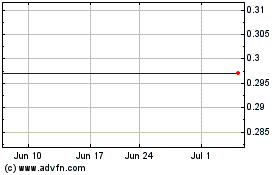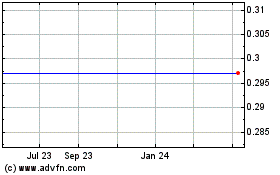What to Look For This Week - Analyst Blog
November 07 2011 - 2:25AM
Zacks
This should be a relatively quite week. Earnings season is winding
down, and there will only be 17 earnings reports out for S&P
500 firms, with the bulk of them being retailers (and some tech)
that have fiscal periods that ended in October, not September.
The economic calendar is also sparse. On Monday, Consumer Credit is
expected to have increased by $5.0 billion in September, partially
reversing a $9.5 billion drop in August. I suspect most of the
increase will come from non-revolving loans like car loans, rather
than higher credit card balances.
On Tuesday, we will get more detail on the employment situation
with the JOLTS report, but that will be for September, not October.
It is likely to show that he number of unemployed outnumber the
level of job openings by more than 4.5:1. In a healthy economy the
ratio is closer to 2:1. It is also likely to underscore that the
real job problem we face is not an excessive number of layoffs, but
an extreme dearth of new hiring.
The biggest report of the week will the on the Trade Deficit. It is
expected to edge up slightly from its August level of $45.6
billion. I consider the Trade Deficit to be a far more serious
economic problem than the Budget Deficit (which we will also get on
Thursday), particularly in the short to medium term. It is directly
responsible for the country being deeply in debt to places like
China and Japan. An increase in the Trade Deficit is almost a
dollar for dollar reduction in GDP growth.
Our problem is not on the export side -- exports have been growing
nicely are on pace to double over five years -- it is more on the
import side. However, it will be interesting to see if there has
been any impact from the Euro crisis on our exports to Europe.
Taken together, Europe is our biggest trading partner and accounts
for about 25% or our exports.
More than half of our total trade deficit is due to our addition to
imported oil. We need to finally get serious about ending that.
Conservation and higher levels of energy efficiency play a critical
role here, but alone will not be able to solve the problem. Over
the long term, we need to transition to more renewable power, but
we are starting from a very small base, and so it will take a very
long time before we get the bulk of our power from things like wind
and solar.
In any case, wind and solar mostly provide electricity, and the
imported oil is mostly used as a transportation fuel. While the
technology for powering ships with wind power has been well
established for thousands of years, the same is not true for cars
and trucks. Natural gas, though, could be easily adopted as a
transportation fuel, and we have lots of it available
domestically.
Very modest government incentives could go a long way towards
jump-starting that, and the jobs creating in tapping our huge shale
gas reserves would go a long way towards bringing down
unemployment. But given the "chicken and egg" problem of no one
buying a natural gas-powered car since they can’t refuel, no
refueling since there are no natural gas cars on the road, it is
not going to happen without government leadership. Yes, we will
need some regulation of the drilling to make sure that groundwater
is not contaminated, but that is not a reason to avoid using that
vital new resource.
The money spent on natural gas would stay within the U.S. economy,
rather than flow overseas, and that would stimulate more domestic
demand for a wide range of goods and services not directly related
to the oil industry.
It is also a policy that can get bipartisan support. Since
the major natural gas producers are the existing oil companies,
such as
Exxon (XOM) and
Chevron
(CVX), the GOP is not likely to upset its biggest backers by
blocking it the way they have other measures to stimulate the
economy and bring down unemployment. The biggest direct
beneficiaries, though, would probably be the more gas-focused
independent E&P companies like
Chesapeake
(CHK) and firms that specialize in fracking operations, such as
Carbo Ceramics (CRR).
With earnings season slowing and a light economic calendar, all
eyes are likely to continue to be focused on the ongoing Greek
drama this week. I think the market will drift higher through the
end of the year, mostly because valuations remain compelling. The
key word is "drift," not "zoom" higher like in October.
CHESAPEAKE ENGY (CHK): Free Stock Analysis Report
CARBO CERAMICS (CRR): Free Stock Analysis Report
CHEVRON CORP (CVX): Free Stock Analysis Report
EXXON MOBIL CRP (XOM): Free Stock Analysis Report
Zacks Investment Research
CARBO Ceramics (NYSE:CRR)
Historical Stock Chart
From Jun 2024 to Jul 2024

CARBO Ceramics (NYSE:CRR)
Historical Stock Chart
From Jul 2023 to Jul 2024
